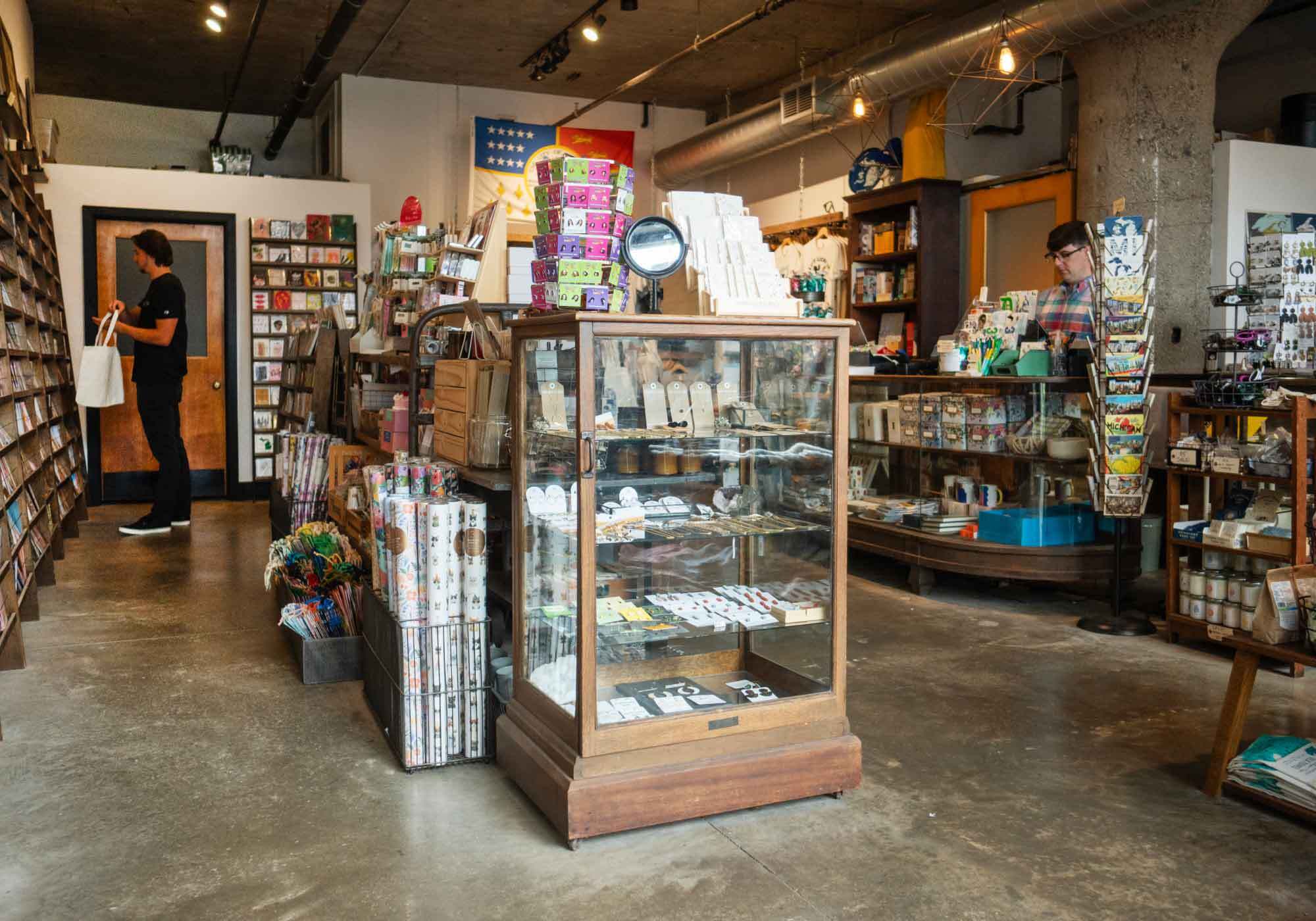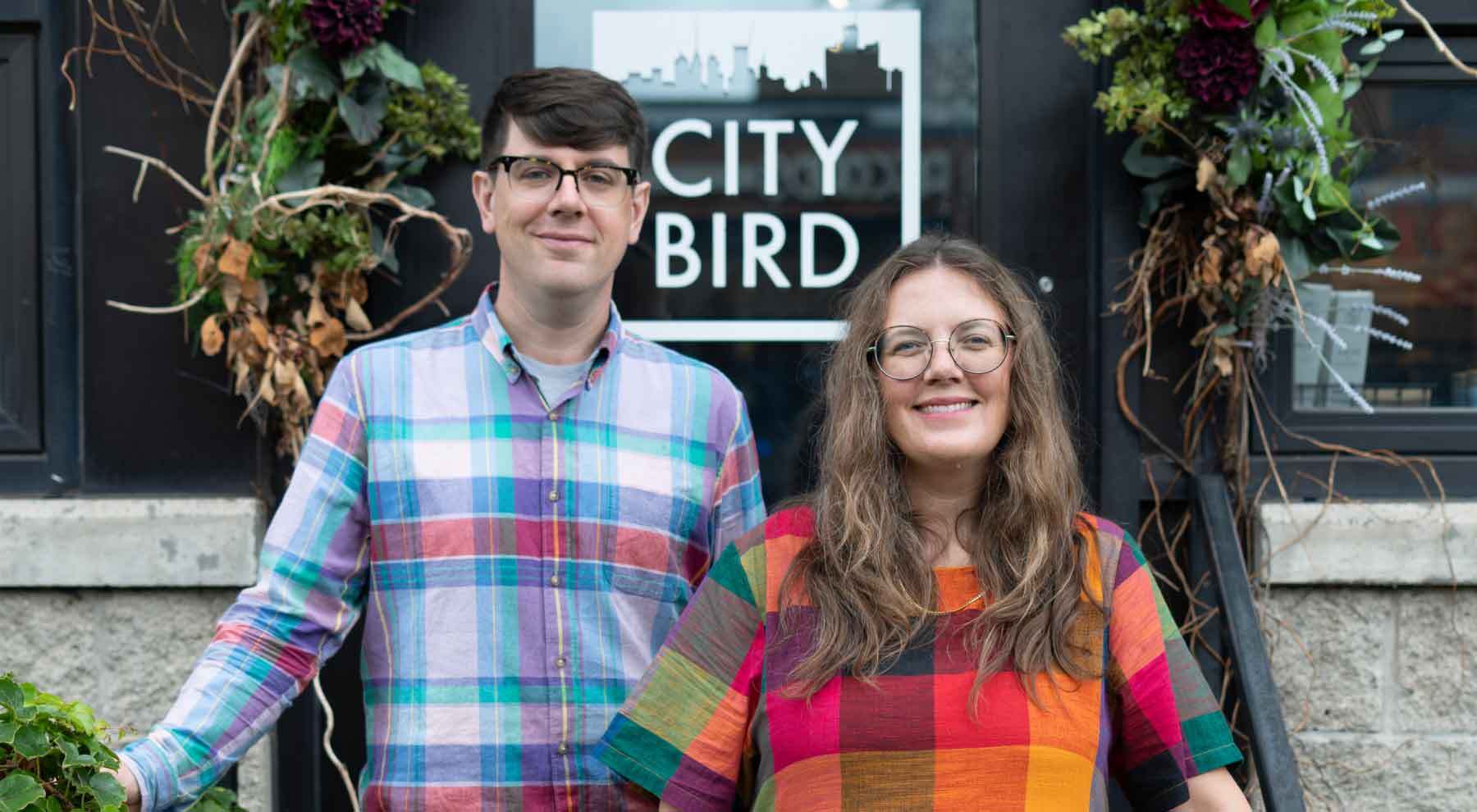
Today City Bird is a beloved retail institution in Detroit, but when the store opened in 2009 this stretch of Canfield Street looked very different.
“The view from our counter was just an empty auto factory and a vacant lot,” says Emily Linn, co-founder of City Bird. Today the design-focused gift shop sits across from retail pioneer Shinola Detroit, a watch factory and store, and Third Man Records, a label and store launched by Jack Black, among other local gems. “This has become a vibrant neighborhood with great shopping. It’s very walkable and it’s been exciting to see that transformation.”
Detroit’s well-documented decline accelerated in the 1970s, and the city filed for bankruptcy in 2013. Yet despite the negative headlines and urban decay photo spreads, motivated and forward-thinking retailers continued to take a chance on the city.
For entrepreneurs Andy and Emily Linn, that belief in Detroit stemmed from having grown up in the city and a deep understanding of what makes it special. “We’re seventh-generation Detroiters,” says Andy. “We’ve lived here our whole lives. The city means a lot to us. We’ve always been big Detroit boosters and wanted to do our part to turn things around.”
Like their parents before them, siblings Andy and Emily attended the University of Michigan, specializing in different disciplines. Andy studied urban planning while Emily, an illustrator, got her MFA in photography.

“The store really comes out of my background in urban planning and Emily’s background in fine art,” says Andy. “Going back about 15 years ago, we both lived in this neighborhood, and we’d been selling some goods, some handmade goods locally at craft fairs, and we felt like there wasn’t a natural place to sell them in the neighborhood or in the city. And we really wanted to create that place. We also thought that there could be a lot more amenities in our neighborhood, and we wanted to create more walkability and vibrancy.”
“We were excited to be a part of the development of the city,” adds Emily. “There weren’t a lot of great products available that celebrated Detroit. There were a couple of small t-shirt companies, but we were kind of jealous of other cities that have lots of gear with the city’s name on it. So we started making different types of products that we were selling at craft fairs.”
Those Detroit-centric products now encompass hundreds of wholesale items that are sold to retailers around the region. City Bird’s brick-and-mortar footprint has grown, too. Next door, the founders opened a sister store, Nest, and they plan to open a children’s store over the next few years.
Because of the city’s reputation, Detroiters who are invested in improving their communities often face very specific barriers. “One is the question of market studies,” Malik Yakini, the executive director of the Detroit Black Community Food Security Network, told Arch Daily. “If you’re going to any financiers for a deal, they want to see a market study that suggests the demographics and all the other factors align [to] reasonably project that the business will be viable. But the problem with that is that this art and science of developing market studies is not some objective thing.” That article points out that Detroit is consistently surprising. When a Whole Foods opened in 2013, it performed much better than expected.
It would be naive to not mention the inequality that still pervades a segregated city like Detroit, but a strong city core draws in transplants from around the country and world. “Some say America’s middle class was born in Detroit,” writes Susan Ager in her excellent feature about the individuals rebuilding the city. In our current age of great inequality, motivated entrepreneurs and creatives are drawn to Detroit because it offers them the same opportunity as migrating auto workers in the early 1900s: being part of a thriving middle class.
“A friend of ours has said that Detroit is big enough to make a difference in the world, but small enough where we can make a difference,” says Andy of City Bird. “I think that that’s what makes this city so special.”
City Bird’s omnichannel business is powered by Lightspeed. Reach out to us if your retail business needs a point of sale platform that can scale with you.

News you care about. Tips you can use.
Everything your business needs to grow, delivered straight to your inbox.


